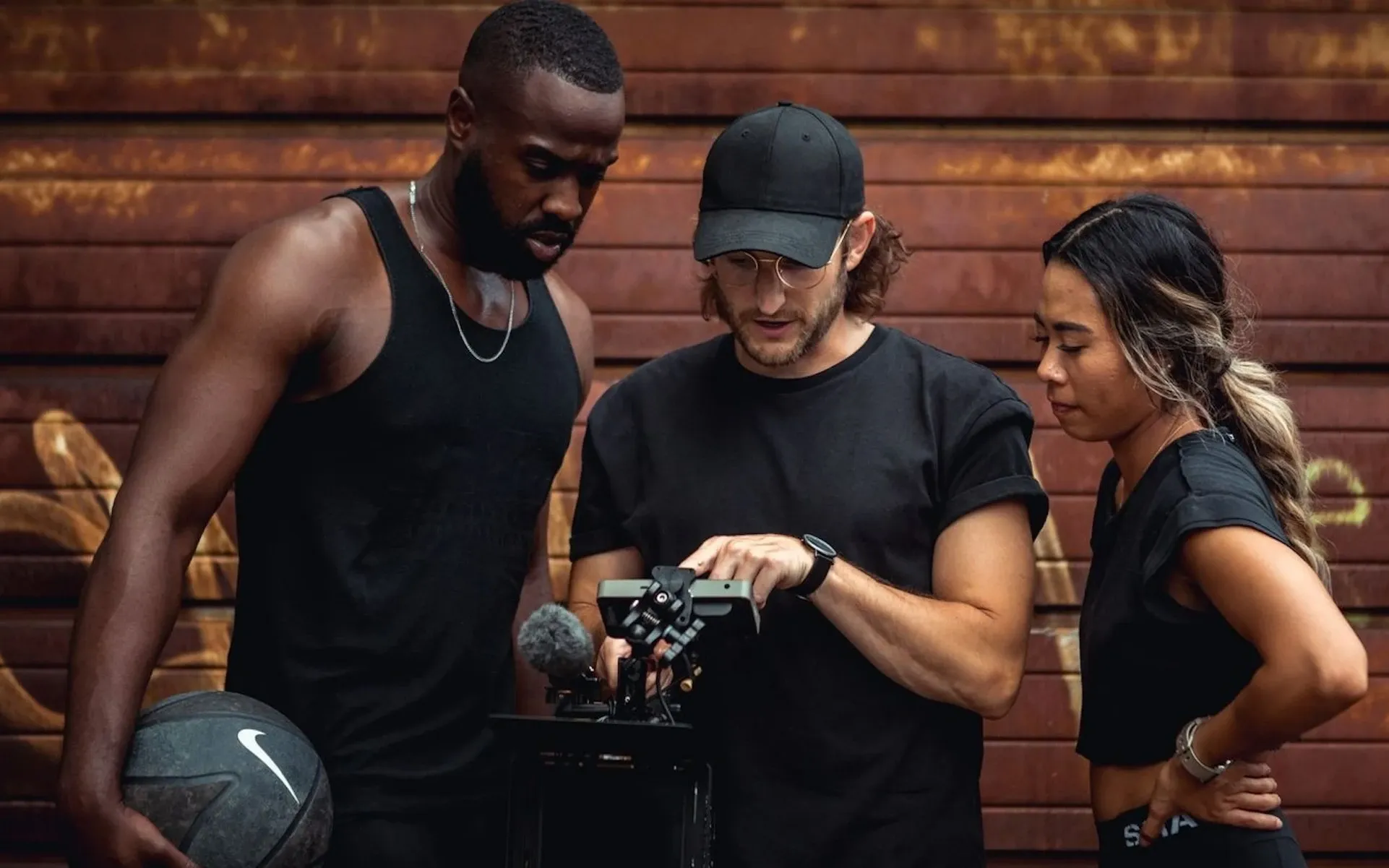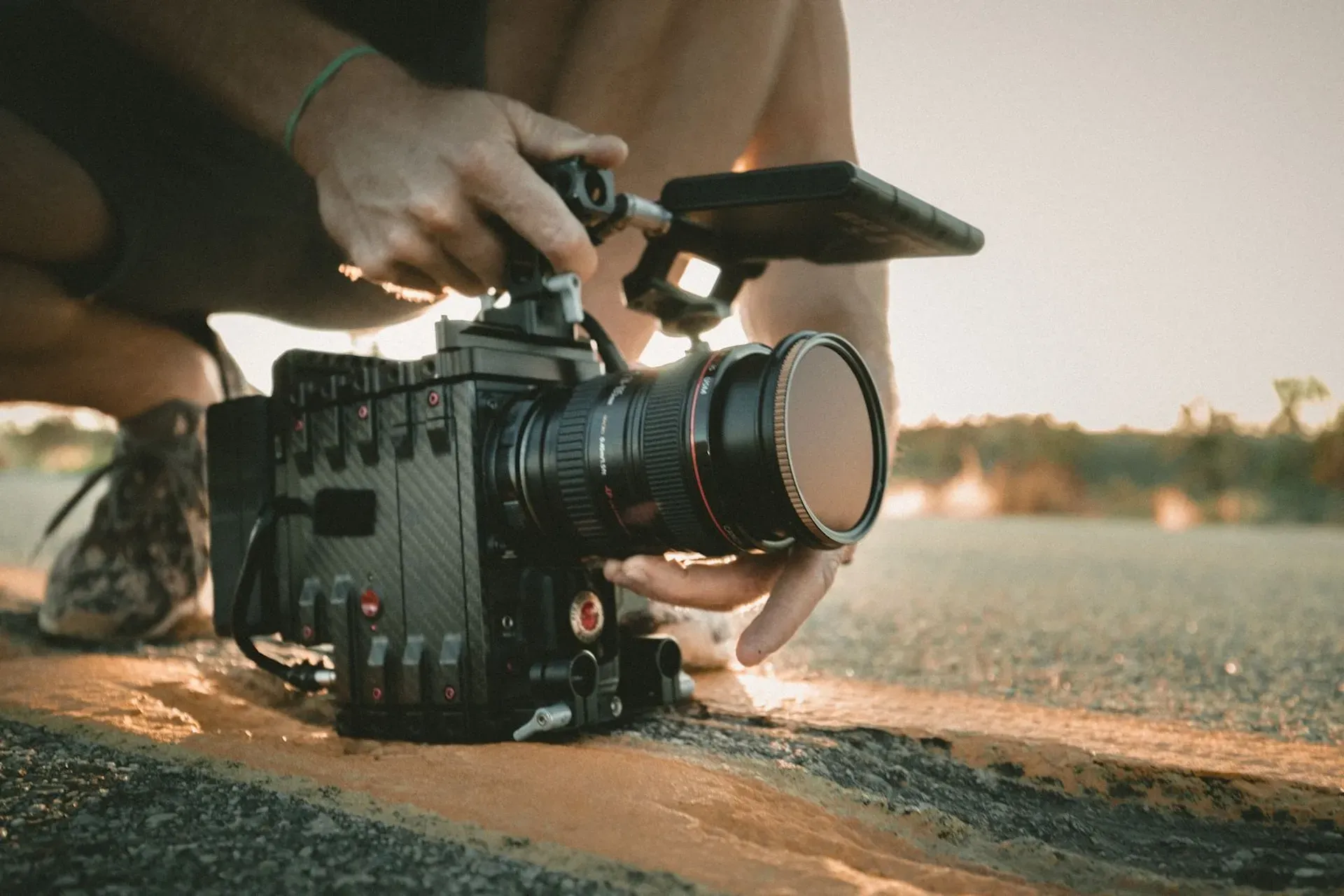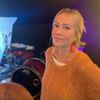All you need to know about documentary filming
Interested in the art of documentary making? Keen on learning more but not sure where to start? You’ve come to the right place!

Interested in the art of documentary making? Keen on learning more but not sure where to start? You’ve come to the right place!
If you’re into documentaries and documentary filmmaking but don’t know a lot about it and lack the motivation to dig deeper – this article is for you. To give you a proper introduction to documentary making, let’s start off with some of the basics and key steps of filming a documentary.
documentary / dɒkjʊˈmɛnt(ə)ri/ a film or television or radio program that provides a factual report on a particular subject
Key steps in shooting a documentary
Tell a story you’re passionate about
Trying to tell a story you don’t care about simply won’t turn out a success. The passion you put into a project (or don’t) will show.
Set up a plan and a shot list
Create an outline and decide on your structure. What’s the style you’re going for, what do you need to get the outcome you want, and which shots are crucial to telling your story?
Research your topic
The more you know, the better. By digging deeper, you might even discover a new interesting angle to your story.
Write a script
Even though documentaries are not like regular feature films, you’ll probably need some questions to ask and perhaps a narrative added as a voice-over.
Shoot your shots
When you’re shooting, make sure you collect as many angles and different types of shots as possible right away – you’ll probably just get one chance to do it.
Edit to perfection
Time to piece the puzzle together! Try mixing a variety of shots and cut out unnecessary scenes to bring your audience on a dynamic journey.
Get it out there
Finally, you’d want as many people as possible to watch your masterpiece after all the hard work you’ve put in. Luckily, there has never been a better time to distribute content online.
Now, to give you some inside information from the industry, let’s zoom in on the award-winning documentary director and Epidemic Sound Ambassador, Mark Bone. How did he get into documentaries? What’s his best advice for newbies? And what’s that one piece of gear that you should invest in? Let’s get nerdy!

Get to know documentary director Mark Bone
How did you get into documentary filmmaking?
When I graduated high school, I spent time working with a humanitarian organization in Egypt. During my time there, I supported a group of doctors assisting refugees fleeing from the Darfur War in Sudan. I had no medical training, so my job was to sit and listen to refugees harrowing stories of the war and their perilous journey to Egypt. Their resilience and kindness inspired me, and I knew right there that I wanted to tell the real-world stories of individuals like these refugees. I just didn't know at the time that documentaries would be the medium I would choose as a storyteller.
How do you find inspiration for your productions?
I'm most fascinated by people in the midst of conflict, whether that be inner turmoil or the space they inhabit. The two traits I admire in people are heroism and humility. The combination of these qualities is compelling to me, and it's these people I want to explore and celebrate in my filmmaking. I like the unseen, unknown characters, who are most focused on fixing their world rather than the fame of accomplishments.
What has been the most important buy to better your production value?
I would say the best piece of gear I ever bought was my Small HD 502. Having a high resolution, larger monitor on set has allowed me to see my cinematography closer to the final product, which is sort of crucial unless you're shooting on film. I'm blown away by how many people forgo monitors instead of other gear; I just can't operate without it.
What’s your process for finding the best music for your documentaries?
Many of my films are first inspired by music that I listen to; a good music score is imperative for me. I often just listen to playlists off Epidemic Sound, even if it's just drones or synth pads, and let my mind go free. My mind is always racing with to-do lists during the week, but I find cinematic music allows my mind to explore new film ideas, scenes, or just visceral images I hope to create in my films. I read somewhere that our phones have stopped us from practicing thinking. I feel music allows me to get back to this, just think. Our brain needs exercise too, and music is the space I flex that thinking skill.
What’s your best advice for someone new in documentary filming and wants to be successful?
Stop thinking about the gear you need and start thinking about the story you're telling. I find most new documentary filmmakers don't have conflict in their film. The character in their film doesn't want anything or need anything or they haven't communicated this in their film. Without someone trying to achieve something, whether that's a physical task like winning a sporting event or a more emotional pursuit like fixing a relationship in their life, then you don't have a character, you just have a human on camera. After a while this gets boring. It's why the genre of "travel films" is nearly dead. There is no conflict, there is no story, we already know how the film ends before it begins: sunset drone shot overlooking the ocean.
What are you most proud of accomplishing?
This is a tough question. I try not to gauge my career on the films I've created but rather the impact they’re having on individual lives. Watching the paramedics from Rescate receive new medical supplies because FireFighters Without Borders were inspired to support after watching the film was a cool moment. If I had to qualify this answer regarding my films, being nominated beside Spike Jonze at the 2019 Ciclope Awards for one of my films was a thrill. His films inspired me growing up and shaped a lot of my storytelling techniques, I sort of geeked out at that moment.
What’s the plan for the future?
With the launch of the course, we are realizing we have a huge opportunity to help many people take huge steps in their filmmaking career. We are considering starting an academy or incubator of sorts to help develop new documentary ideas. Ultimately I want to keep creating movies about unsung heroes from around the world. I would like my collection of work to leave a legacy of hope.

Want to learn more about documentary filmmaking?
Keen on pursuing a career in documentary filming? Perhaps it’s a hobby of yours that you’d like to get better at? Sounds like Mark’s course 'THE ART OF DOCUMENTARY', is for you. Learn more below!
The Art of Documentary is an in-depth, video-based course looking at every stage of documentary and commercial filmmaking. This course is designed to elevate your storytelling and give you the tools and understanding to create engaging films for your clients and your next film.
The course has over 50+ exclusive video lessons as well as downloadable content and podcasts. Award-winning filmmaker Mark Bone and acclaimed feature film director Michael Del Monte will be taking you through every step of their film directing, cinematography, and editing experience.
This course is for anyone interested in filmmaking, whether you're just starting off or a seasoned filmmaker. Mark and Michael will also be providing group coaching calls for students signed up for the course. The course launched on Aug 24th but will continue throughout the fall.
Sign up here.
Mark Bone is a film and documentary director as well as Epidemic Sound Ambassador. Check out his YouTube channel here.
Want to use top-tier music in your next documentary? Check out Epidemic Sound's catalog below.

Are you a video editor or filmmaker? Whether you’re an absolute master or just a beginner, discover what Epidemic Sound has to offer in our Epidemic Sound for Filmmaking page. Oh, and if you’re looking for some background music for your videos, we got you covered.
Related posts:

